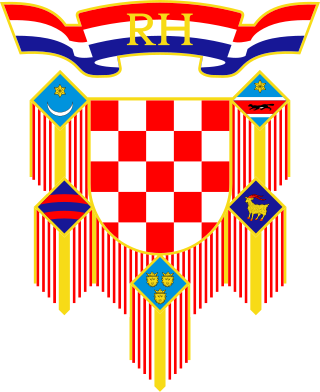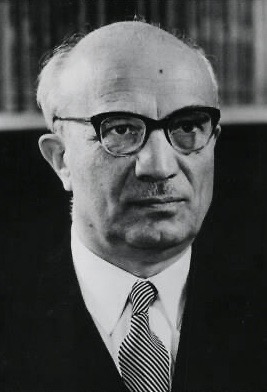This article includes a list of references, related reading, or external links, but its sources remain unclear because it lacks inline citations .(February 2013) |
These are some of the notable events relating to politics in 2003.
This article includes a list of references, related reading, or external links, but its sources remain unclear because it lacks inline citations .(February 2013) |
These are some of the notable events relating to politics in 2003.
Politics in Estonia takes place in a framework of a parliamentary representative democratic republic, whereby the Prime Minister of Estonia is the head of government, and of a multi-party system. Legislative power is vested in the Estonian parliament. Executive power is exercised by the government, which is led by the prime minister. The judiciary is independent of the executive and the legislature. Estonia is a member of the United Nations, the European Union, and NATO.

Politics in Portugal operates as a unitary multi-party semi-presidential representative democratic republic, whereby the Prime Minister of Portugal is the head of government, and the President of Portugal is the non-executive head of state which, although it is a somewhat ceremonial figure, has some significant political powers they exercise often. Executive power is exercised by the Government, whose leader is the prime minister. Legislative power is primarily vested in the Assembly of the Republic, although the government is also able to legislate on certain matters. The Judiciary of Portugal is independent of the executive and the legislature. The President exerts a sort of "moderating power", not easily classified into any of the traditional three branches of government.

The prime minister of Italy, officially the president of the Council of Ministers, is the head of government of the Italian Republic. The office of president of the Council of Ministers is established by articles 92–96 of the Constitution of Italy; the president of the Council of Ministers is appointed by the president of the Republic and must have the confidence of the Parliament to stay in office.

The president of Croatia, officially the president of the Republic of Croatia, is the head of state, commander-in-chief of the military and chief representative of the Republic of Croatia both within the country and abroad. The president is the holder of the highest office in Croatia. However, the president is not the head of the executive branch as Croatia has a parliamentary system in which the holder of the post of prime minister is the most powerful person within the country's constitutional framework and everyday politics.
These are some of the notable events relating to politics in 2002.
These are some of the notable events relating to politics in 2004.

The president of Nigeria, officially the president of the Federal Republic of Nigeria is the head of state and head of government of the Federal Republic of Nigeria. The president directs the executive branch of the federal government and is the commander-in-chief of the Nigerian Armed Forces.

Amintore Fanfani was an Italian politician and statesman, who served as 32nd prime minister of Italy for five separate terms. He was one of the best-known Italian politicians after the Second World War and a historical figure of the left-wing faction of Christian Democracy. He is also considered one of the founders of the modern Italian centre-left.
These are some of the notable events relating to politics in 2005.
These are some of the notable events relating to politics in 2006.
In a governmental system, a party leader acts as the official representative of their political party, either to a legislature or to the electorate. Depending on the country, the individual colloquially referred to as the "leader" of a political party may officially be party chair, secretary, or the highest political office.
On 30 November 2021, Barbados transitioned from a parliamentary constitutional monarchy under the hereditary monarch of Barbados to a parliamentary republic with a ceremonial indirectly elected president as head of state. The prime minister remained head of government while the last governor-general, Dame Sandra Mason, was elected as the country's first president on 20 October 2021, and took office on 30 November 2021.
The following table indicates the party of elected officials in the U.S. state of Louisiana:
The following table indicates the party of elected officials in the U.S. state of Texas:

The 2014 United States Senate elections were held on November 4, 2014. A total of 36 seats in the 100-member U.S. Senate were contested. 33 Class 2 seats were contested for regular 6-year terms to be served from January 3, 2015, to January 3, 2021, and 3 Class 3 seats were contested in special elections due to Senate vacancies. The elections marked 100 years of direct elections of U.S. senators. Going into the elections, 21 of the contested seats were held by the Democratic Party, while 15 were held by the Republican Party.

The 2013 United States elections were held on Tuesday, November 5, 2013. This off-year election cycle featured several special elections to the United States Congress; two gubernatorial races; state legislative elections in a few states; and numerous citizen initiatives, mayoral races, and a variety of other local offices on the ballot.

The 2017 United States elections were held, in large part, on Tuesday, November 7, 2017. This off-year election featured gubernatorial elections in Virginia and New Jersey, as well as state legislative elections in both houses of the New Jersey Legislature and in the Virginia House of Delegates. Numerous citizen initiatives, mayoral races, and a variety of other local elections also occurred. Special elections were also held for one seat of the U.S. Senate, representing Alabama, and six seats of the U.S. House of Representatives. The Democrats picked up the governorship in New Jersey and the Alabama Senate seat that was up for a special election. The governorship in Virginia and the six House seats that were up for special elections did not change party hands.

United States gubernatorial elections were held on November 8, 2022, in 36 states and three territories. As most governors serve four-year terms, the last regular gubernatorial elections for all but two of the seats took place in the 2018 U.S. gubernatorial elections. The gubernatorial elections took place concurrently with several other federal, state, and local elections, as part of the 2022 midterm elections.

These six off-year races featured special elections to the 113th United States Congress to fill vacancies due to resignations in the United States House of Representatives. Two were due to Congressmen taking seats in the United States Senate, one resigned to take jobs in the private sector, one resigned to take a job in the public sector, and one resigned due to an impending federal indictment regarding misuse of campaign funds.

There were six special elections to the United States House of Representatives in 2021 during the 117th United States Congress.